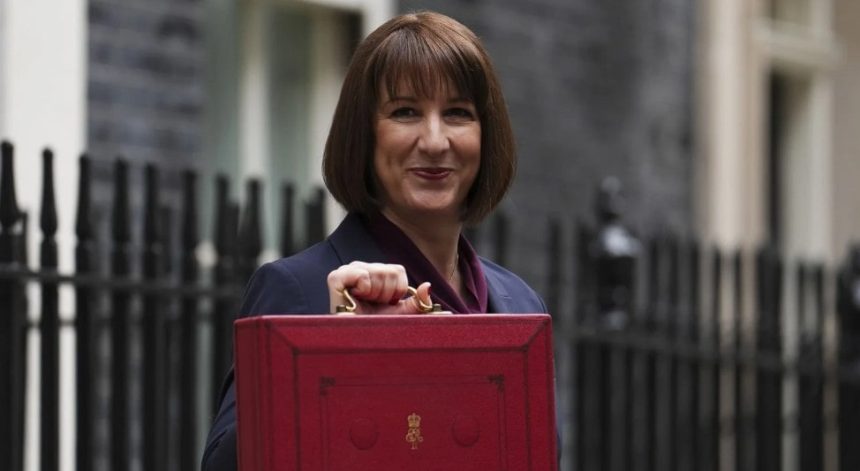As the UK faces rising unemployment, public service strain, and national debt, attention is on Labour’s Rachel Reeves. With Labour possibly returning to power, many wonder how she’ll tackle these financial challenges.
Her next moves could reshape government policy and directly impact millions of lives. Here are five key areas where her decisions could make a lasting difference.
1. Government Spending Plans
One of the biggest challenges Reeves faces is deciding how public money should be used. Will she opt for broad spending cuts or a smarter reshuffle of existing budgets?
Many essential public services—like the NHS, education, and local councils—are already under enormous strain. Widespread cuts could deepen those struggles and cause real hardship for people relying on support. But Reeves may also face limited room to increase spending without creating more debt.
Some experts believe she will aim to reallocate funds to high-impact areas like green energy, digital infrastructure, and housing, focusing on long-term benefits rather than short-term savings.
However, striking that balance will be tricky, especially if public pressure builds around issues like cost-of-living support and the state of public transport.
Ultimately, Reeves must show that she can deliver smarter spending, not simply less spending.
2. The Future of Taxes in the UK
Reeves is likely to face intense scrutiny over her approach to taxes. Who will be asked to pay more? Will large corporations and the wealthiest individuals face higher rates, or will the pressure fall—once again—on ordinary working people?
Reeves has indicated Labour would avoid broad tax hikes for middle- and lower-income households, though some rises may still be needed. She may also consider new taxes, like digital service or windfall taxes on big profits, to ease the burden on ordinary families.
For many voters, Reeves’ choices on taxation will be seen as a clear test of fairness. If her plans are viewed as favouring big business or disproportionately impacting working families, public support could quickly slip away.
3. Deciding on Borrowing Plans
Borrowing will almost certainly be part of Reeves’ financial toolkit. But the question is how much is too much?
Investing in major projects like clean energy, transport upgrades, and new housing could drive long-term growth but may require short-term borrowing. Reeves stresses the importance of fiscal responsibility and indicates she won’t borrow recklessly.
Still, with interest rates higher than they’ve been in years, borrowing now carries real risks. Markets could react negatively if investors lose confidence in the UK’s ability to manage its debt.
Reeves will need to balance investment against financial caution, and many people will be watching to see whether she’s willing to take bold risks for growth—or whether she sticks to a safer, more conservative path.
4. Focusing on Growing the Economy
Rachel Reeves has been clear: growing the UK economy is central to her plan.
Labour plans to invest in green industries, tech hubs, and infrastructure to create jobs, attract investment, and drive long-term growth for public services and wages.
However, economic growth doesn’t happen overnight. Some analysts are concerned that even the best growth plans could take years to deliver noticeable benefits, especially after a long period of stagnation.
Meanwhile, critics have increasingly blamed Rachel Reeves for rising unemployment, suggesting her strategies may not be addressing immediate job losses effectively.
The key question will be: Can growth come fast enough to relieve the financial pressure the country is currently facing? And will the promised new industries actually deliver high-quality, stable jobs?
5. Rebuilding Public Trust
Perhaps the hardest task of all is winning back public trust. After years of economic strain, political scandals, and broken promises from successive governments, many people are deeply sceptical about whether politicians—regardless of party—can genuinely fix the UK’s financial problems.
Reeves will need to not only lay out clear, deliverable plans but also show that Labour can be trusted to stick to them. Transparency, accountability, and visible progress will be crucial if she wants to keep public confidence on her side.
Trust-building may prove just as important as tax plans or spending policies. Without it, even the most carefully designed strategies could lose public support.
The Road Ahead
Rachel Reeves is facing some of the toughest financial decisions in modern UK politics. Each choice carries risks, and none of the paths forward will be easy.
As voters, economists, and political commentators keep a close eye on her next steps, the decisions she makes could shape the UK’s economic future for years to come.
Whether Reeves will be able to balance bold investment, fiscal responsibility, and public trust remains to be seen—but one thing is certain: the stakes could not be higher.






